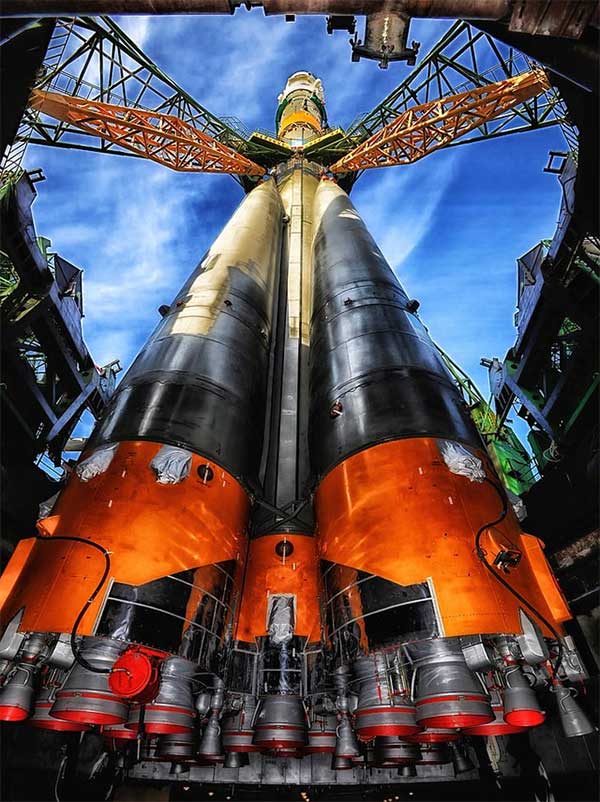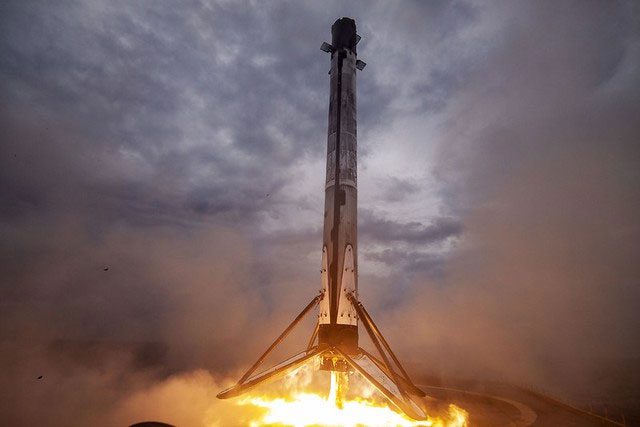TASS reports that during a discussion with the news portal Prokosmos on Monday, February 19, the General Director of the Russian State Space Corporation Roscosmos, Yury Borisov, unveiled three major plans for the Russian space industry in 2024.
These can be seen as three “heavyweight rockets,” crucial for restoring Russia’s position in the global space sector.
First: Russia to Conduct Over 40 Space Launches in 2024
“In 2023, we also planned a significant number of launches. Unfortunately, due to some objective circumstances, we were unable to fully carry out the launch program,” Borisov stated.

Russian Soyuz rocket system. (Photo: NASA).
Borisov emphasized that Russia made significant efforts in 2023 and will continue to strive in 2024 to ensure the smooth operation of Roscosmos. “It is crucial to avoid any potential delays in launches, and Roscosmos will continue to focus on facilitating stable and efficient launch plans. The main mission this year is to complete the entire launch program.”
In 2023, Roscosmos conducted 19 space launches, including 17 by the Soyuz-2 rocket and 2 by the Proton-M rocket.
Second: Russia Announces Plans to Develop Lightweight Launch Vehicles
Moreover, the head of Roscosmos revealed that Russia is researching the development of ultra-lightweight, reusable launch vehicles and expressed hope that Russia would soon be able to renew its launch vehicle fleet and restore its position in the global market for space launch services.
“We are studying the production of ultra-lightweight launch systems. This effort is initiated by the Advanced Research Fund and is being implemented by the Russian Scientific and Engineering Center for Rocket and Space Technology, TsNIIMash. This launch system will not only be ultra-light but also capable of taking off from various spaceports,” Borisov stated.
The General Director of Roscosmos noted that this ultra-lightweight rocket will be fully reusable, similar to the Amur-LNG rocket powered by methane, which is currently under development. Both of these launch vehicles will be based at the Vostochny Cosmodrome in the Russian Far East.

Amur-LNG rocket using methane fuel, reusable. (Photo: Space).
He mentioned that the Russian Ministry of Defense “is also interested in this ultra-lightweight rocket to ensure profitability for rocket launch services.”
“Our main client, the Russian Ministry of Defense, is also looking forward to this work. They are interested in this new rocket system to serve the economic interests of the nation from launch services. This is why Russia has high hopes for this new program.”
The head of Roscosmos indicated that the development of the ultra-lightweight rocket has been ongoing for 2-3 years but has not yet been disclosed due to new technological and design solutions.
Third: Russia Allocates 50 Billion Rubles for 500kg Satellite Conveyor Production
In the same talk with Prokosmos, Yury Borisov stated that Roscosmos will allocate approximately 50 billion rubles (about 545 million USD) to organize the production of a satellite conveyor weighing around 500 kg.
Borisov noted that young experts from the satellite manufacturing company Reshetnev (Russia) have organized the assembly of the satellite conveyor without incurring much capital cost after a tour of the Kamaz heavy truck manufacturing complex.
“This is a serious experience that needs to be replicated. The conveyor at Reshetnev was created for assembling satellites weighing around 100 kg, while we need to develop a conveyor for spacecraft/satellites weighing up to 500 kg. This is a larger-scale processing device that requires more capital. And our Roscosmos has planned around 50 billion rubles for this.”
According to Borisov, the main trend in modern space travel is satellites weighing 500 kg or less. This type of satellite conveyor system will meet the growing demand for such launches.


















































